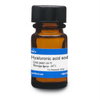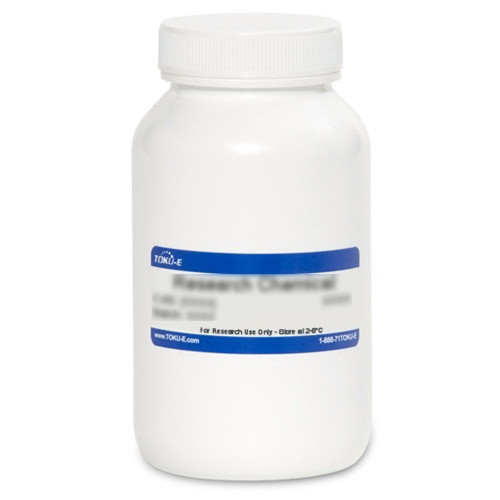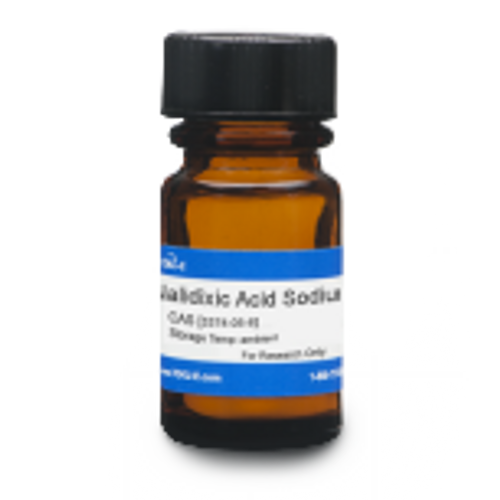Hyaluronic Acid Sodium is the sodium salt form of Hyaluronic acid, an anionic anionic, nonsulfated glycosaminoglycan distributed widely throughout connective, epithelial, and neural tissues. It is unique among glycosaminoglycans in that it is nonsulfated, forms in the plasma membrane instead of the Golgi, and can be very large, with its molecular weight often reaching the millions. One of the chief components of the extracellular matrix, Hyaluronic acid contributes significantly to cell proliferation and migration, and may also be involved in the progression of some malignant tumors. Hyaluronic Acid Sodium is used in tissue engineering and the study of wound healing.
Hyaluronic Acid Sodium is soluble in water.
| Eukaryotic Cell Culture Applications | Ethanol impairs collagen metabolism in human skin fibroblasts, leading to a decrease in the amount of produced protein. Hyaluronic acid had a protective effect on the disturbances caused by ethanol as shown by cultured human skin fibroblasts (Donejko et al, 2015). Bovine articular chondrocytes were encapsulated by a composite hydrogel derived from water-soluble chitosan and oxidized hyaluronic acid. The hydrogen supported cell survival and cells retained their chrondrocytic morphology. This characteristic provides a potential opportunity to use the composite hydrogels in tissue engineering applications (Tan et al, 2009). Hyaluronic acid promoted migration of human corneal epithelial cells in vitro. The effect is likely to be related to rapid migration of cells leading to wound closure, likely facilitated by the adhesion between CD44 (a cell surface adhesion molecule) and hyaluronic acid, which coats the surface of the cornea (Gomes et al 2004). |
| Molecular Formula | (C14H21NaNO11)n |
| Impurity Profile | D-Clucuronic Acid: ≥44.0% Protein: ≥0.1% Heavy Metals: ≤20ppm Total Bacteria: ≤100 CFU/g Mold and Yeast: ≤100CFU/g |
| References |
Donejko M et al (2015) Hyaluronic Acid abrogates ethanol-dependent inhibition of collagen biosynthesis in cultured human fibroblasts. Drug Des. Devel. Ther.. 9:6225-6233 PMID 26648698 Gomes JAP, Amankwah R, Powell-Richards A, and Dua HS (2004) Sodium hyaluronate (hyaluronic acid) promotes migration of human corneal epithelial cells in vitro B. J. Ophthalmol. 288:821-825 Tan H, Chu CR, Payne KA and Marra KG (2009) Injectable in situ forming biodegradable chitosan-hyaluronic acid based hydrogels for cartilage tissue engineering. Biomat. 30(13):2499-2506 |








